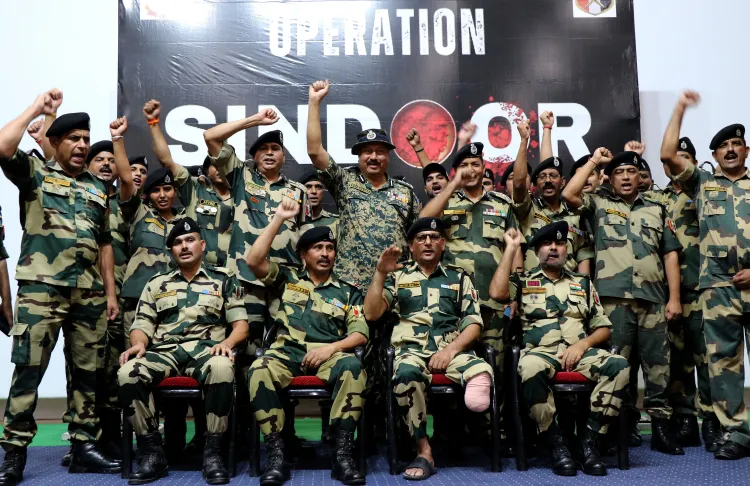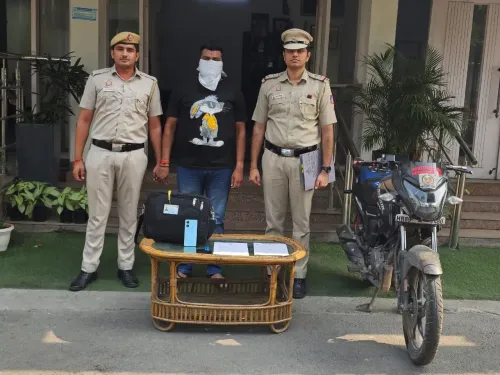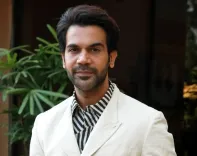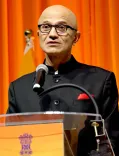Is FairPoint Exposing the Hidden Front in Op Sindoor?

Synopsis
Key Takeaways
- Operation Sindoor showcased India's military precision.
- Information warfare is crucial in modern conflicts.
- Bias in media can affect public perception significantly.
- India must develop a strategic narrative to combat misinformation.
- International reporting often lacks sensitivity to India's security concerns.
New Delhi, July 13 (NationPress) National Security Advisor Ajit Doval's emphasis on the foreign media's bias against India's interests unveils a broader concern: modern warfare transcends mere missiles and drones; it now encompasses the information warfare domain.
India executed Operation Sindoor remarkably, showcasing precision that few recent operations have matched. With targeted strikes on Pakistani military assets while ensuring civilian safety, this operation is a testament to a modern warfare strategy where crafting the right narrative is as crucial as striking the right target.
In an age dominated by social media and a non-stop news cycle, the ability to shape perceptions and incite reactions is substantial. This narrative buildup can either bolster those in power or generate momentum for the opposition. While this situation may seem unsettling, it reflects the current reality of warfare — a blend of military precision and information supremacy.
Operation Sindoor serves as a prime example of this hybrid warfare model. It involved not only sophisticated weaponry but also vigorous information dissemination. India excelled in traditional combat — hitting enemy targets accurately, as noted by NSA Doval. Striking specific targets throughout Pakistan was a significant accomplishment that many nations would envy. However, the media war escalated to unprecedented levels, resulting in chaos.
The digital landscape was inundated with misinformation, manipulated videos, and propaganda. Pakistan and its allies made concerted efforts to undermine India's achievements through this media conflict, a point emphasized by NSA Doval during his address at the 62nd Convocation of IIT Madras on July 11.
He pointed out how foreign media reported on actions taken by Pakistan while photographic evidence clearly indicated damage only to Pakistani infrastructure. "Can you show me one image that depicts any damage to Indian assets — not even a broken glass pane?" Doval challenged. The only visible destruction was to 13 Pakistani air bases in areas like Sargodha, Rahim Yar Khan, and Chaklala.
Unfortunately, India's internal political dialogue also contributed to this narrative. Remarks from opposition figures like Rahul Gandhi and others, questioning the operation's effectiveness, were amplified by Pakistani media.
These statements lent credibility to Pakistan's narrative and undermined India's messaging. While such critiques may be perceived as a political maneuver, the timing was detrimental, particularly when evidence of success had emerged.
Historically, Western media have shown a lack of understanding regarding India's security concerns, often downplaying Pakistan's role in sponsoring terrorism. Whether during the 1965 or 1999 conflicts, the 2016 surgical strikes, the 2019 Balakot airstrikes, or now Operation Sindoor, biased reporting has been a constant.
An exception was the US House Foreign Affairs Committee, which recently criticized The New York Times for its portrayal of the April 22 Pahalgam terrorist attack, condemning the use of terms like "militants" and "gunmen" instead of "terrorists." This marked a significant move by the US administration to address media bias.
However, many prominent Western media outlets and social platforms have continued to provide unbalanced reporting on Pakistan-sponsored terror and India's legitimate right to self-defense. This distorted narrative not only misrepresents international perspectives but also hampers global efforts against terrorism.
In this light, NSA Doval's critique of biased reporting is crucial. By highlighting double standards, he underscored India's necessity not just to safeguard its borders, but also to maintain its global narrative.
While Operation Sindoor reaffirmed India's technological and military prowess, it also highlighted the urgent need for a robust, strategic counter-narrative mechanism — one that combats misinformation, enhances transparency, and amplifies India's voice in the global conversation regarding Pakistan-sponsored terrorism and regional security.
(Deepika Bhan can be contacted at deepika.b@ians.in)









